Fix: Windows Update Error 0x80248007
The update error 0x80248007 means that there are either missing files in the Windows Update or Windows Update can’t locate the Microsoft Software License Terms.
The error usually happens when you’re trying to update Windows or any Windows drivers using Windows Update. The updates won’t be downloaded and installed, and it may happen that you get this error no matter how many times you try.
Microsoft has acknowledged this error, and it should be fixed in an update for Windows, but until that happens, there are a few things that you can try to help fix it and update Windows and the drivers.

Method 1: Use an Elevated Command Prompt
This error can sometimes be solved by manually starting the Windows Installer service. The steps to do that are as follows:
- Press the Windows key and type Command Prompt, then choose Run as administrator.
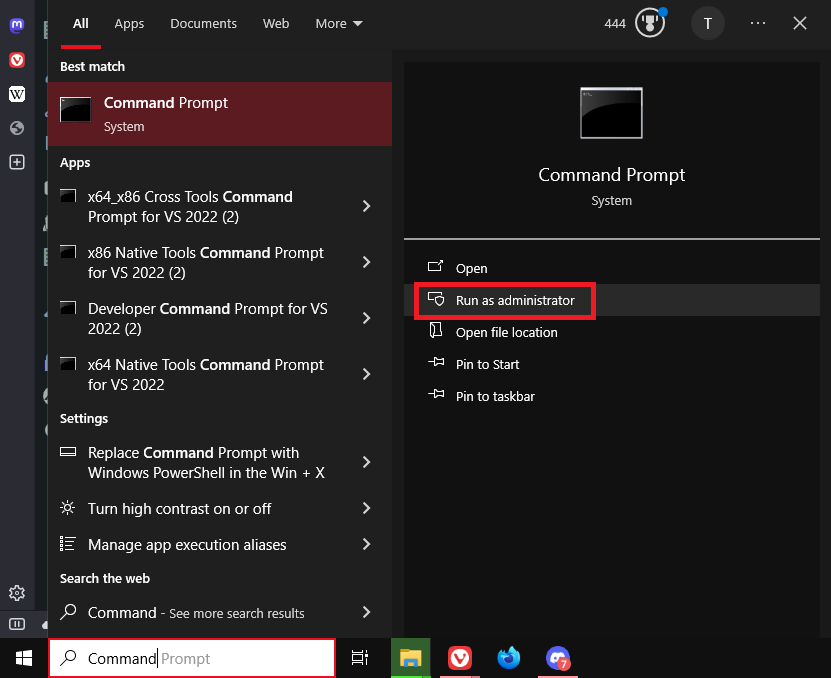
- In the Elevated Command Prompt, type “net start msiserver” and hit Enter on your keyboard to execute the command.

- Close the command prompt by clicking the X or by typing Exit and executing the command. You should now be able to update Windows without any issues.
Method 2: Restart the Windows Update service
Stopping the Windows Update service, deleting the temporary update files, and restarting the service can also help. You will delete any temporary files that might be the culprit of this issue, and therefore Windows Update will be able to proceed without any problems. Note that you will need to be logged on as an administrator to be able to perform the steps.
- Press Win + R and type “services.msc” then click OK.
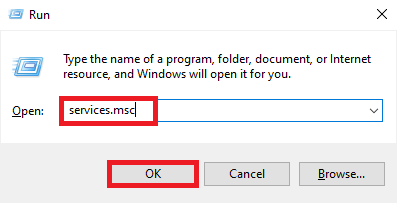
- In the Services window, find the Windows Update or Automatic Updates, depending on your version of Windows, right-click it, and select Stop from the menu.

- Using the File Explorer, navigate to the partition or drive where Windows is installed. Usually this will be the C:
- Once inside the drive, open the Windows folder and the SoftwareDistribution folder inside.
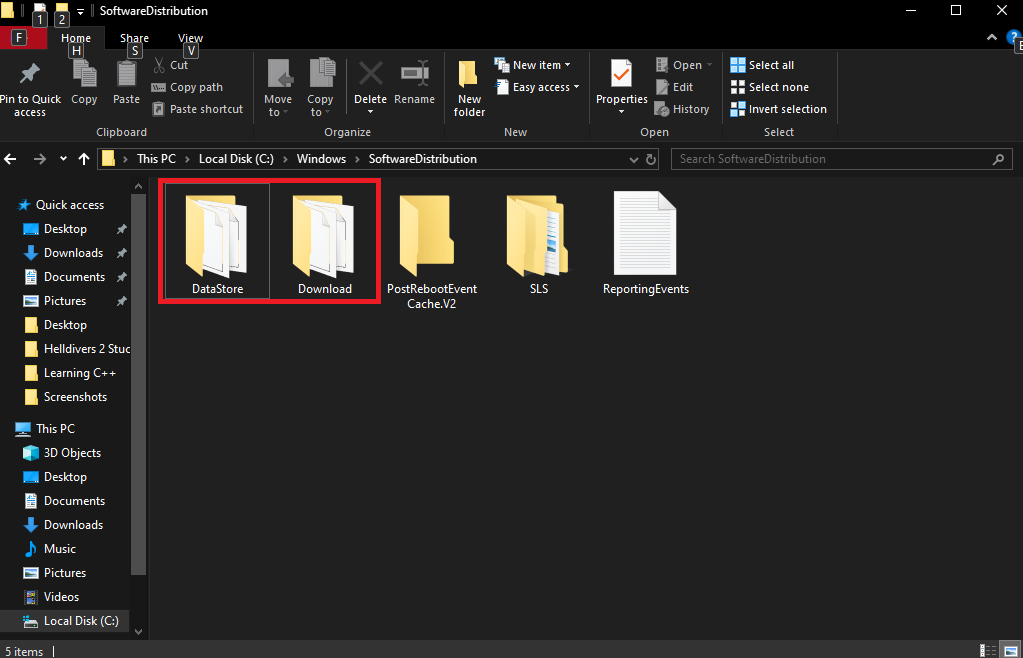
- Find and open the DataStore and Download folder, and delete everything inside. If you get a UAC prompt, provide confirmation.
- Repeat step 1 and 2 to open the Services panel again.
- Find Windows Update or Automatic Updates, right-click it, and select Start from the context menu.
- Now test, and it should update fine.
Given that this is a known error to Microsoft, you would be right if you’re expecting them to fix it. However, as there is no time frame in which the error will be fixed, if you’re one of the many frustrated users who are experiencing the issue, use the aforementioned methods to get rid of it.
Method 3: Clean the SoftwareDistribution folder
The aforementioned SoftwareDistribution folder contains a number of files that are unfortunately fairly easy to corrupt. If they get corrupted, you will get a huge number of errors with Windows. However, deleting certain folders in the SoftwareDistribution folder will fix these issues.
- Open File Explorer by simultaneously pressing the Windows and E keys on your keyboard.
- Press Ctrl and L at the same time to access the Address Bar, and type in %systemroot%\SoftwareDistribution, then press This will open the SoftwareDistribution folder.
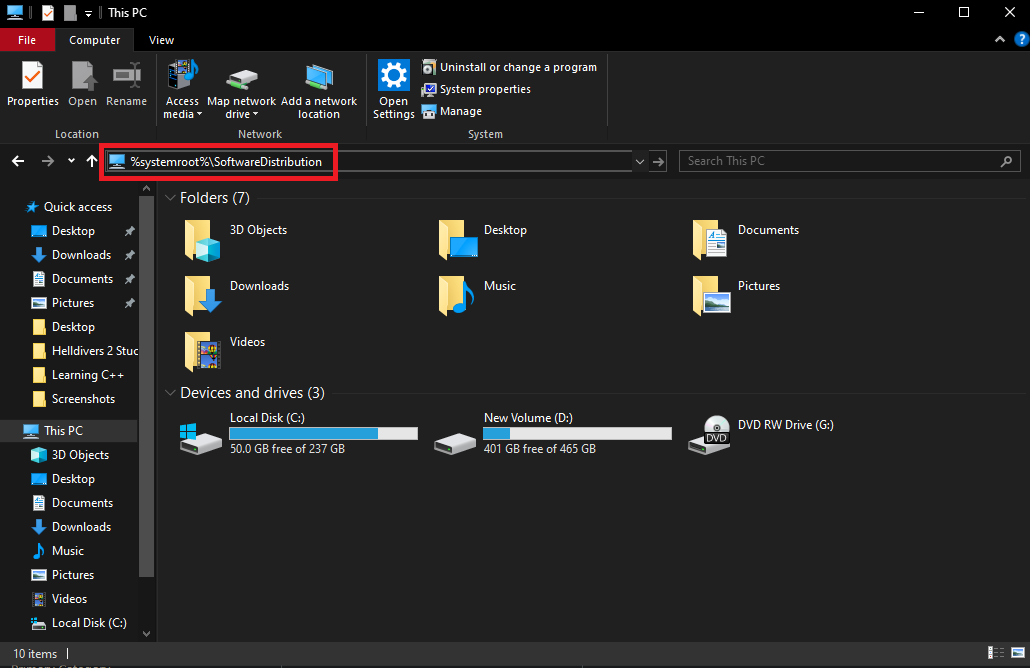
- Inside it, locate the DataStore and Download then delete the contents of both folders.
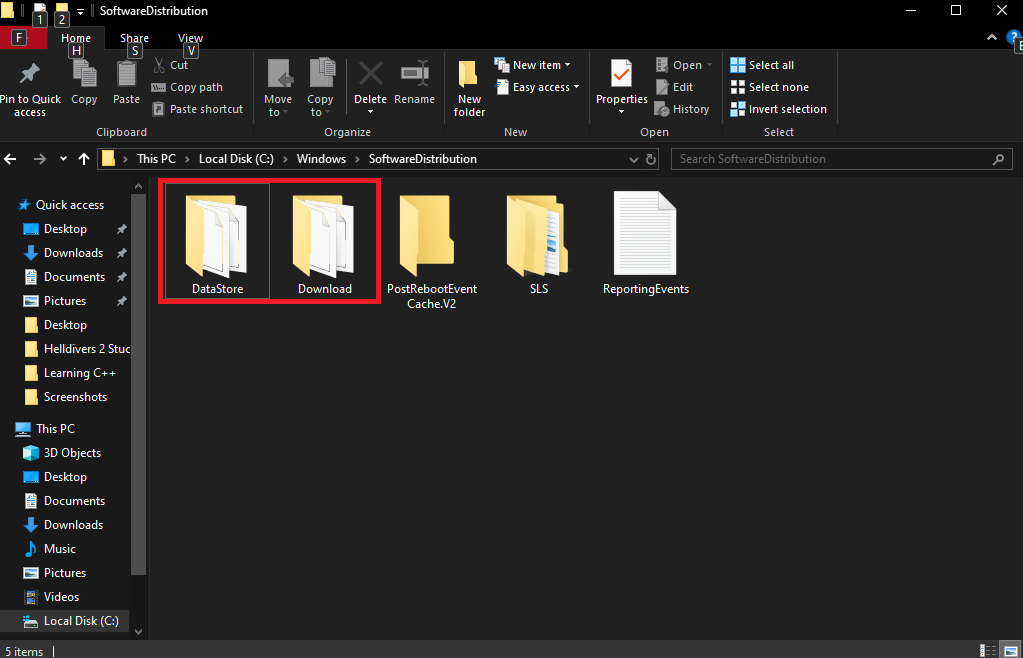
- Reboot your computer. The updates should be working flawlessly now.
Method 4: Running SFC and DISM commands
If the error still persists, then you can run System File Checker (SFC) and Deployment Image Servicing and Management (DISM), which are Windows built-in tools to check your Windows Operating System files to see if there are any missing or corrupted files. If any missing or corrupted files are found, then it will fix them. Keep in mind that this process will take time.
- Click on the Windows icon on the bottom left, type Command Prompt and press Enter.

- Type “sfc/scannow” and press Enter.

- Type “DISM.exe /Online /Cleanup-Image /RestoreHealth” and press Enter.

Method 5: Update manually from Microsoft’s website
There are some situations where Windows Update simply refuses to work even though you’ve tried the methods above, and in those situations, you can always try to manually update your OS using Microsoft’s website. This site always has the latest updates, and if you install them right away, you will have the latest features and bug fixes that Microsoft offered.